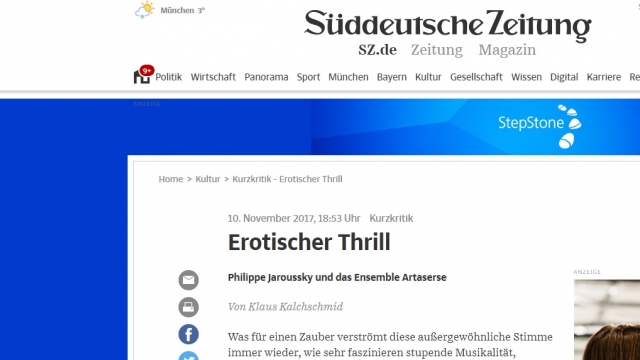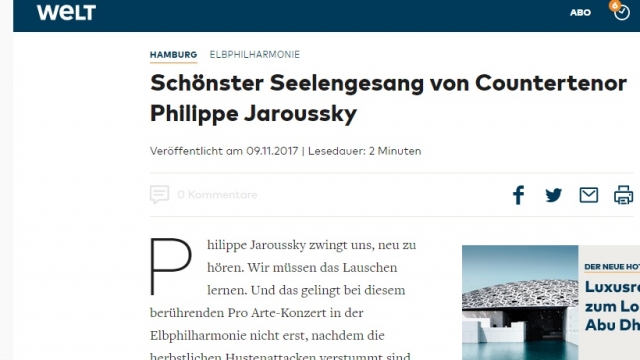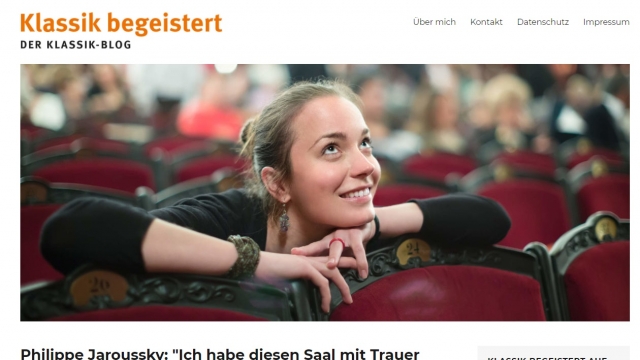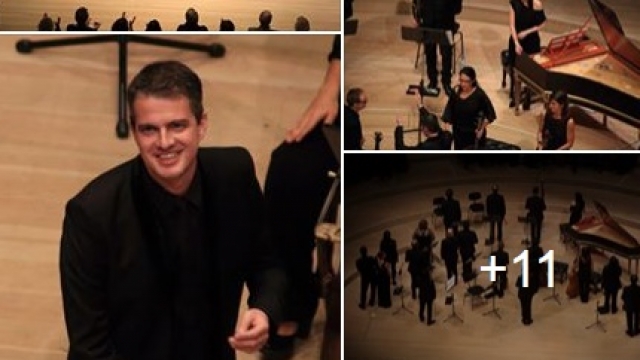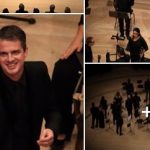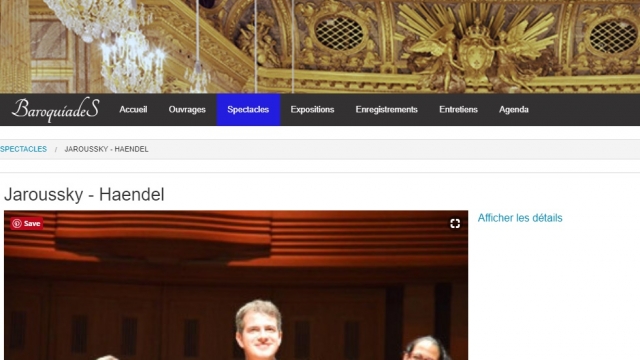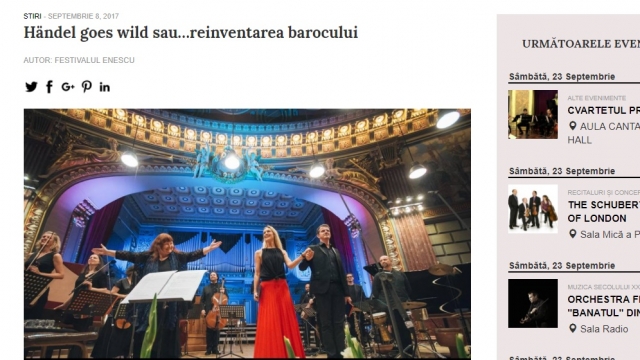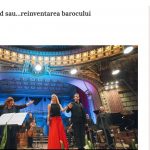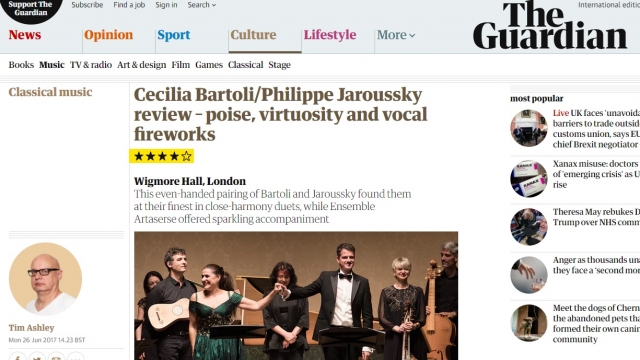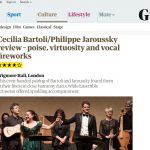2017-06-22, Neue Züricher Zeitung, by Christian Wildhagen
“Wie fortgeblasen sind dagegen alle Schatten, wenn sich beide im Duett in Liebeständeleien stürzen, etwa in das ohrwurmverdächtige «Damigella tutta bella» von Monteverdi oder in den von Cavalli so leidenschaftlich vertonten Zwiegesang zwischen Helena und Menelaus, der in die hingebungsvoll ausgekostete Zeile mündet: «l’anima ti consacro, il cor ti dono». In der Terzenseligkeit dieser Schlussphrase offenbaren die Stimmen von Bartoli und Jaroussky eine Harmonie im Timbre, innig bis fast zur Ununterscheidbarkeit, die man gerade bei diesen beiden so charaktervollen Sängern nicht für möglich gehalten hätte.”
*This is a fan translation. If you have any problems with this being online, just drop us a line and we’ll remove it immediately. Translation by Lankin*
Source/Read more: [x]
Cecilia Bartoli and Philippe Jaroussky in Zurich
Two world stars from out of the weather clock
[translator’s note: I don’t think weather clocks are prevalent around the world, so let me explain what a weather clock even is: It’s basically a visualization of a barometer, and dependent on whether the pressure is low or high, a mechanism brings a different figurine to the front, mounted mostly on a swiveling dish. They used to be pretty common in Southern Germany and Austria, but there are others around the world as well. Mostly, and obviously, the figures are different, one dressed for rain, and one for sunshine.
Here is a pretty standard South-German one, …: [x]

And this is one from Denmark: [x]
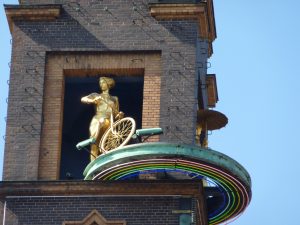 ]
]
By Christian Wildhagen, 22 June 2017, 05:30 a.m.
Cecilia Bartoli and Philippe Jaroussky celebrate their artistic friendship in the church of St. Peter: an original evening of duets centered around Claudio Monteverdi, full of wit and subtle irony. And a feast for the ears.
[caption:] Spiritual and vocal harmony: Cecilia Bartoli and Philippe Jaroussky. (Picture: PD)
A match made in heaven: For a long time now, there is a close artistic relationship between Cecilia Bartoli, the celebrated mezzo soprano – Zürich based in the meantime – and Philippe Jaroussky, French countertenor of no less acclaim. Their joint domain is Baroque opera, and most of the time, one of the two world stars alone guarantees a venue will be filled to the last spot. Consequently, there was a rush on the tickets for the special concert of the “Neue Konzertreihe Zürich” that brought together Bartoli and Jaroussky for an original evening of duets in the church of St. Peter.
The haut goût of courtly banquets
Monteverdi’s 450th birthday provided the welcome framework. However, it wasn’t the grandmaster of opera who was to get center stage – like, for example, at the Lucerne Festival this summer, where he is going to receive comprehensive appraisal – but the creator of supremely original secular vocal music that still hasn’t secured its spot in today’s concert scene.
Why that is the case became apparent that night: Monteverdi’s “Scherzi musicali,” of which the first collection was published in 1607, the same year that “Orfeo” had its premiere, are an art of entertainment laced with the haut goût of courtly banquets – which is exactly what makes them so eloquent and lively for us today. However, it is always the entertaining, and the delicate that proves the most difficult when it comes to interpretation.
Both trained singers, Bartoli and Jaroussky know of course that they cannot recover the original crudeness and authenticity of this talking music. They make do, however, introducing a playful, subtly ironical element into their performance that ventures into the staged and operatic – right from the start, when after the Toccata from “Orfeo” – vibrantly played by the Ensemble Artaserse – the two appear, one after the other, to the left and right of the double portal of the choir screen like two figurines in a barometric weather clock from the middle ages.
At the start, it is undoubtedly Bartoli who is in charge of the sunshine. Her energy is rubbing off on the audience when she joins the wonderfully flexible and attentive musicians of the ensemble in prancing through Monteverdi’s “Quel sguardo sdegnosetto,” a pert declaration of war on Amor. Jaroussky, on the other hand, is in charge of the less sunny weather and moods. Once he is the scorned lover, like in the “Lamento d’Alessandro” from the opera “Eliogabalo” by Francesco Cavalli, Monteverdi’s successor in Venice, then he is the dreamy Xerxes, in Cavalli’s setting of the aria that would become famous in Händel’s version, the “Ombra mai fu.”
The ups and downs of love
However, all clouds are swept away when both dive into dallying love duets like the catchy “Damigella tutta bella” by Monteverdi, or the the duet between Helena and Menelaus, passionately composed by Cavalli, mounting in savouring the devoted line “l’anima ti consacro, il cor ti dono.” In the bliss of parallel thirds at the closing phrase, Bartoli’s and Jaroussky’s voices reveal a harmony in their timbres, so intimate they become almost indistinguishable, something that hardly would have been deemed possible with two voices so characteristic.
Too much of played consent and love, of course, would be boring, and so, before the intermission, Bartoli cancels the agreement in Agostino Steffani’s “Combatton quest’alma” – cheekily running off down the church’s aisle, leaving her dumbfounded partner behind. Until the final reconciliation with Monteverdi’s “Zefiro torna,” and the final duet from “L’incoronazione di Poppea,” love has to suffer its share of ups and downs – much to the joy of the audience.�
Source/Read more: [x]

